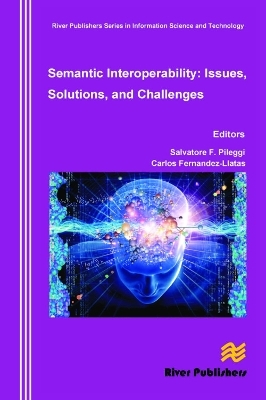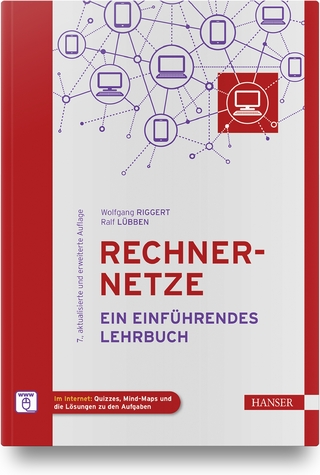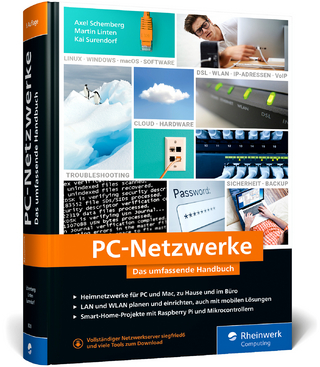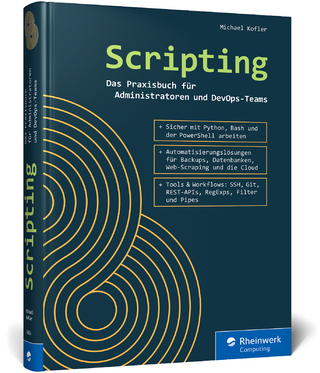
Semantic Interoperability Issues, Solutions, Challenges
Seiten
2012
River Publishers (Verlag)
978-87-92329-79-0 (ISBN)
River Publishers (Verlag)
978-87-92329-79-0 (ISBN)
The Semantic Interoperability model would improve common interoperability models introducing the interpretation of means of data. In practice, semantic technologies are partially inverting the common view at actor intelligence: intelligence is not implemented (only) by actors.
Semantic technologies are experimenting an increasing popularity in the context of different domains and applications. The understanding of any class of system can be significantly changed under the assumption any system is part of a global ecosystem known as Semantic Web.The Semantic Web would be an evolving extension of current Web model (normally referred as Syntactic Web) that introduces a semantic layer in which semantics, or meaning of information, are formally defined.So, semantics should integrate web-centric standard information infrastructures improving several aspects of interaction among heterogeneous systems. This is because common interoperability models are progressively becoming obsolete if compared with the intrinsic complexity and always more distributed focus that feature modern systems. For example, the basic interoperability model, that assumes the interchange of messages among systems without any interpretation, is simple but effective only in the context of close environments. Also more advanced models, such as the functional interoperability model that integrates basic interoperability model with the ability of intepretating data context under the assumption of a shared schema for data fields accessing, appears not able to provide a full sustainable technologic support for open systems.The Semantic Interoperability model would improve common interoperability models introducing the interpretation of means of data. Semantic interoperability is a concretely applicable interaction model under the assumption of adopting rich data models (commonly called Ontology) composed of concepts within a domain and the relationships among those concepts.In practice, semantic technologies are partially inverting the common view at actor intelligence: intelligence is not implemented (only) by actors but it is implicitly resident in the knowledge model. In other words, schemas contain information and the "code" to interpretate it.
Semantic technologies are experimenting an increasing popularity in the context of different domains and applications. The understanding of any class of system can be significantly changed under the assumption any system is part of a global ecosystem known as Semantic Web.The Semantic Web would be an evolving extension of current Web model (normally referred as Syntactic Web) that introduces a semantic layer in which semantics, or meaning of information, are formally defined.So, semantics should integrate web-centric standard information infrastructures improving several aspects of interaction among heterogeneous systems. This is because common interoperability models are progressively becoming obsolete if compared with the intrinsic complexity and always more distributed focus that feature modern systems. For example, the basic interoperability model, that assumes the interchange of messages among systems without any interpretation, is simple but effective only in the context of close environments. Also more advanced models, such as the functional interoperability model that integrates basic interoperability model with the ability of intepretating data context under the assumption of a shared schema for data fields accessing, appears not able to provide a full sustainable technologic support for open systems.The Semantic Interoperability model would improve common interoperability models introducing the interpretation of means of data. Semantic interoperability is a concretely applicable interaction model under the assumption of adopting rich data models (commonly called Ontology) composed of concepts within a domain and the relationships among those concepts.In practice, semantic technologies are partially inverting the common view at actor intelligence: intelligence is not implemented (only) by actors but it is implicitly resident in the knowledge model. In other words, schemas contain information and the "code" to interpretate it.
Salvatore F. Pileggi, Carlos Fernandez-Llatas
Semantic Interoperability Issues, Solutions, Challenges
| Erscheint lt. Verlag | 4.4.2012 |
|---|---|
| Verlagsort | Gistrup |
| Sprache | englisch |
| Maße | 156 x 234 mm |
| Gewicht | 453 g |
| Themenwelt | Mathematik / Informatik ► Informatik ► Netzwerke |
| Mathematik / Informatik ► Informatik ► Theorie / Studium | |
| Mathematik / Informatik ► Informatik ► Web / Internet | |
| Technik ► Elektrotechnik / Energietechnik | |
| Technik ► Umwelttechnik / Biotechnologie | |
| ISBN-10 | 87-92329-79-9 / 8792329799 |
| ISBN-13 | 978-87-92329-79-0 / 9788792329790 |
| Zustand | Neuware |
| Haben Sie eine Frage zum Produkt? |
Mehr entdecken
aus dem Bereich
aus dem Bereich
das umfassende Handbuch für den Einstieg in die Netzwerktechnik
Buch | Hardcover (2023)
Rheinwerk (Verlag)
29,90 €
das Praxisbuch für Admins und DevOps-Teams
Buch | Hardcover (2023)
Rheinwerk (Verlag)
39,90 €


